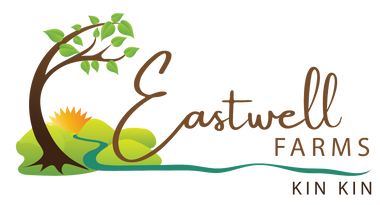Eastwell’s seen a variety of breeds of cattle roam its pastures over the years. Arland, Bryant’s father, ran Santa, Devon and then Brahmans for years. These breeds worked well for him. Nothing wrong with a good Brahman. That was, until Bryant discovered Nguni after conversation with the people from Freckle Farm near Eton in the north. Did you know Nguni are genetically tick resistance? Oh yeah. They don’t need to be sprayed or treated with any kind of chemical. They roam around, chemical-free, munching grass and living life naturally. As we say more environmentally adapted.
Before we explore their success story at Eastwell, it’s essential to understand the origins of Nguni cattle. Indigenous to the southern regions of Africa, these cattle have a lineage that stretches back thousands of years. Historically, Nguni cattle were the prized possessions of the Nguni people, who revered them for their adaptability, resistance to diseases, and overall hardiness.
Nguni cattle evolved in the harsh African environment, as tribal cattle developing traits that allowed them to thrive in challenging conditions. This history of survival and adaptation has prepared them well for the equally lush but tick-ridden pastures of the Noosa Hinterland.
Chemical-Free Agriculture
One of the most remarkable characteristics of Nguni cattle is their inherent resistance to ticks. In the Australian agricultural landscape, ticks pose a significant threat to livestock, often requiring costly treatments and management strategies. Nguni cattle, however, possess a natural tick-resistance that sets them apart.
This resistance is not merely a convenient trait; it’s a game-changer for Australian cattle farmers. The presence of ticks can lead to reduced weight gain, transmission of diseases, and even mortality in cattle. With Nguni cattle, we can run a chemical-free system on the farm, favouring grass health and overall ecosystem regeneration.
Nguni cattle are a perfect fit for the growing demand for grass-fed beef. Their natural ability to thrive on grass and other forage materials makes them a sustainable choice for environmentally conscious consumers.
Nguni cattle’s grazing habits are particularly suited to the Australian landscape, where vast grasslands dominate the countryside. Their ability to efficiently convert grass into high-quality beef is a boon to grass-fed beef farmers like us looking to eliminate their reliance on grain-based feeds.
The use of chemical treatments in cattle farming has raised concerns about their impact on the environment, animal welfare, and even human health. With Nguni cattle’s natural tick-resistance, Australian farmers can significantly reduce their dependency on chemical treatments such as acaricides. This reduced reliance on chemicals benefits not only the cattle but also the environment. Chemical runoff from farms can have detrimental effects on local ecosystems and water sources. By choosing Nguni cattle, farmers take a significant step towards more sustainable and eco-friendly farming practices. We preference raising cattle which are tick-resistant, as opposed to adding this tick resistance through chemical use.
Drought Resilience
Australia is no stranger to droughts, and El Nino has arrived in full force, projecting to remain for the remainder of 2023 and well into 2024. However, Nguni cattle have a history of thriving in regions with unpredictable rainfall patterns (as an aside, we have had 95% less rain this year than 2022). Their ability to endure periods of drought without suffering severe weight loss or health issues makes them a valuable asset to us through these periods of uncertain rainfall.
The Nguni Advantage: Apocalypse Cattle
The nickname “apocalypse cattle” isn’t given lightly. It reflects the Nguni cattle’s remarkable ability to thrive in adverse conditions. In a world where climate change, disease outbreaks, and environmental sustainability are pressing concerns, these cattle provide a glimmer of hope for the future of sustainable agriculture.
Their hardiness, tick-resistance, and suitability for grass-fed beef farming position them as a breed with enormous potential for Australian cattle farmers. By embracing Nguni cattle, farmers can not only increase their resilience in the face of environmental challenges but also contribute to more sustainable and environmentally friendly agricultural practices.
Nguni cattle, with their storied history in Africa and their newfound success in Australia, are truly remarkable creatures. Their natural tick-resistance, adaptability to harsh conditions, and ability to thrive on grass make them the perfect choice for sustainable and eco-friendly beef farming. In a world where the future of agriculture depends on resilience and sustainability, Nguni cattle are leading the charge as the “apocalypse cattle” – a breed that promises a brighter and more sustainable future for cattle farming in Australia.
We appreciate you taking the time to read. Eastwell Farms is a small family farm based in the Noosa Hinterland. We’re finding our feet in a strange economy. Your support is invaluable. Cheers.

